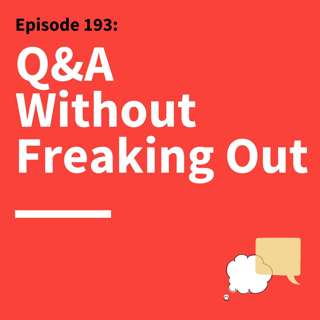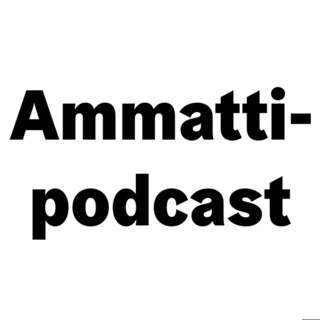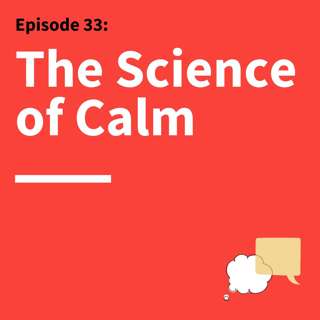
33. Hacking your Speaking Anxiety: How Lessons from Neuroscience Can Help You Communicate Confidently.
“There’s no difference between the physiological response to something that you’re excited about and something that you’re nervous about or dreading,” says Andrew Huberman, associate professor of neurobiology and ophthalmology at Stanford University. In this podcast episode, Huberman talks with host and lecturer Matt Abrahams about his research on the autonomic continuum, a spectrum between states of very high alertness or fear, all the way down to deep sleep, and shares how to better-use the system to your advantage. “If people can conceptualize that the anxiety or stress response is the same as the excitement response, they feel different,” Huberman says. Connect:Premium Signup >>>> Think Fast Talk Smart PremiumEmail Questions & Feedback >>> hello@fastersmarter.ioEpisode Transcripts >>> Think Fast Talk Smart WebsiteNewsletter Signup + English Language Learning >>> FasterSmarter.ioThink Fast Talk Smart >>> LinkedIn, Instagram, YouTubeMatt Abrahams >>> LinkedIn
13 Touko 202132min
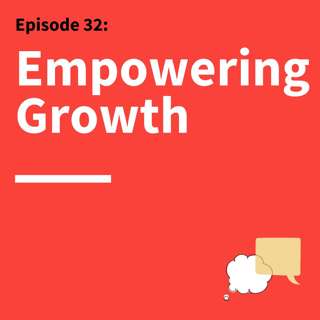
32. Speech That Empowers: How to Encourage Growth and Resilience in a Younger Audience
“Communication is such a delicate dance and kids need to emerge from childhood having practiced,” says Julie Lythcott-Haims, former associate vice provost of undergraduate education Stanford University. In this episode of Think Fast, Talk Smart, lecturer and podcast host Matt Abrahams sits down with Lythcott-Haims to discuss her new book, Your Turn: How to be an Adult, and ideas on how to communicate with young people so they feel empowered to take on the various (and often intimidating) duties of adulthood. “Responsibility isn’t a bad thing,” she says. “Responsibility is actually an amazing thing. And I think we have to do a better job of narrating that truth.”Connect:Premium Signup >>>> Think Fast Talk Smart PremiumEmail Questions & Feedback >>> hello@fastersmarter.ioEpisode Transcripts >>> Think Fast Talk Smart WebsiteNewsletter Signup + English Language Learning >>> FasterSmarter.ioThink Fast Talk Smart >>> LinkedIn, Instagram, YouTubeMatt Abrahams >>> LinkedIn
22 Huhti 202128min

31. Quick Thinks: How to Shine Online and Excel at Virtual Communication
It has been over a year since millions of people have switched from office work to working from home. In this episode of Think Fast, Talk Smart, lecturer and host Matt Abrahams highlights guests’ top takeaways on how to best communicate, share information, and cultivate a professional presence though the screen. “I think we have to find ways to reduce cognitive overload,” says Professor and Senior Associate Dean Sarah Soule. “I now offer my information in much smaller pieces interspersed with breakout groups.”Connect:Premium Signup >>>> Think Fast Talk Smart PremiumEmail Questions & Feedback >>> hello@fastersmarter.ioEpisode Transcripts >>> Think Fast Talk Smart WebsiteNewsletter Signup + English Language Learning >>> FasterSmarter.ioThink Fast Talk Smart >>> LinkedIn, Instagram, YouTubeMatt Abrahams >>> LinkedIn
16 Huhti 20219min
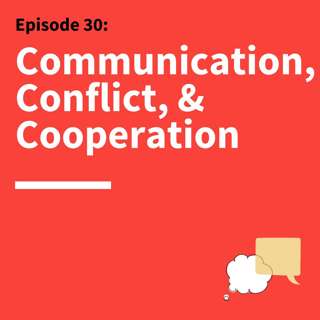
30. Dissolve Disagreements: How Communication Impacts Conflict
“Communication, conflict, and cooperation are intertwined in a multitude of ways,” says Nir Halevy, associate professor of organizational behavior at Stanford Graduate School of Business. In this episode of Think Fast, Talk Smart, Halevy sits down with host and lecturer Matt Abrahams, to discuss how we can often solve conflicts and disagreements by employing the correct strategy in our communication. “How you articulate a particular grievance, your choice of words, the nonverbal aspects of your claim, such as the tone of your voice, can definitely influence reactions to your claim,” Halevy says. Connect:Premium Signup >>>> Think Fast Talk Smart PremiumEmail Questions & Feedback >>> hello@fastersmarter.ioEpisode Transcripts >>> Think Fast Talk Smart WebsiteNewsletter Signup + English Language Learning >>> FasterSmarter.ioThink Fast Talk Smart >>> LinkedIn, Instagram, YouTubeMatt Abrahams >>> LinkedIn
31 Maalis 202124min
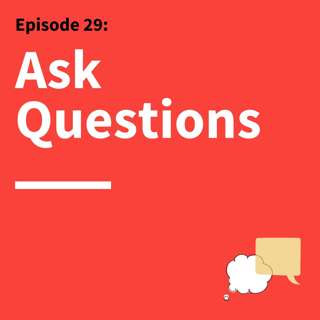
29. Question Everything: Why Curiosity Is Communication’s Secret Weapon
The information you receive is only as strong as the questions you ask. In this episode of Think Fast, Talk Smart, Stanford Graduate School of Business lecturers Matt Abrahams and Debra Schifrin discuss how to craft inquiries that can lead to better communication outcomes. Questions are also instrumental in building relationships, Schifrin points out. “If you’re asking questions, you’re signaling to the other person that you value them. You’re taking time to listen to their answers.”Connect:Premium Signup >>>> Think Fast Talk Smart PremiumEmail Questions & Feedback >>> hello@fastersmarter.ioEpisode Transcripts >>> Think Fast Talk Smart WebsiteNewsletter Signup + English Language Learning >>> FasterSmarter.ioThink Fast Talk Smart >>> LinkedIn, Instagram, YouTubeMatt Abrahams >>> LinkedIn
11 Maalis 202127min
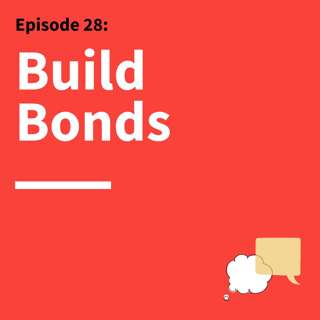
28. Building Strong Relationships: How to Effectively Communicate in Your Professional and Personal Life
Recognizing the importance of forging connections with others — and learning how to build those bonds in real time — is the focus of a course that’s been the most popular elective at Stanford GSB for decades: Interpersonal Dynamics. The iconic course has taught thousands of students and professionals what it means to have exceptional relationships and how to interact with others in a way that contributes to deeper, stronger connections.In this episode of Think Fast, Talk Smart, lecturer and podcast host Matt Abrahams sits down with David Bradford and Carole Robin, lecturer and former lecturer of iconic Stanford GSB class Interpersonal Dynamics to discuss their new book, Connect: Building Exceptional Relationships with Family, Friends, and Colleagues. Both lecturers in leadership, Bradford and Robin outline what they’ve been teaching in the classroom for a broader audience.Connect:Premium Signup >>>> Think Fast Talk Smart PremiumEmail Questions & Feedback >>> hello@fastersmarter.ioEpisode Transcripts >>> Think Fast Talk Smart WebsiteNewsletter Signup + English Language Learning >>> FasterSmarter.ioThink Fast Talk Smart >>> LinkedIn, Instagram, YouTubeMatt Abrahams >>> LinkedIn
18 Helmi 202131min
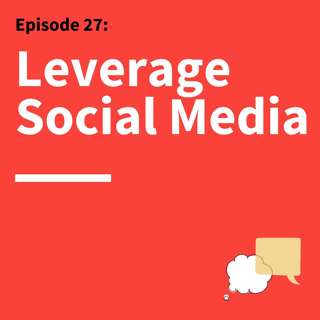
27. Psychology Trumps Technology: How to Be a Better Communicator on Social Media
“Psychology trumps technology,” says Jeff Hancock, founding director of the Stanford Social Media Lab and professor in the Department of Communication at Stanford.“If you want to understand what's going on in social media, the first place to start is with what's going on psychologically.”On the latest episode of Think Fast, Talk Smart, lecturer and podcast host Matt Abrahams sits down with Professor Hancock, to talk about the communication tendencies, styles, and mistakes of social media users. “Whenever there's a new kind of technology ... our focus is on what it's doing,” Professor Hancock says. “But I think over time what we end up realizing is that it's still people using it to accomplish things. And I think when we start to when we step back … we can get a sense of what really is changing.” Connect:Premium Signup >>>> Think Fast Talk Smart PremiumEmail Questions & Feedback >>> hello@fastersmarter.ioEpisode Transcripts >>> Think Fast Talk Smart WebsiteNewsletter Signup + English Language Learning >>> FasterSmarter.ioThink Fast Talk Smart >>> LinkedIn, Instagram, YouTubeMatt Abrahams >>> LinkedIn
28 Tammi 202128min
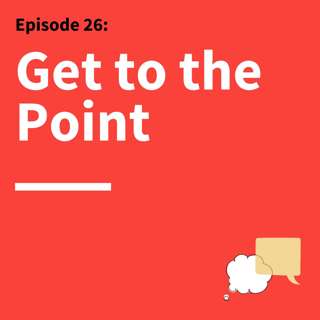
26. Writing to Win: How to Quickly Capture Readers and Keep Them Engaged
“The reader is impatient,” says Glenn Kramon, Stanford GSB lecturer in management and editor at the New York Times. “Start with the most important conclusion and then explain how you got there.”On the latest episode of Think Fast, Talk Smart, lecturer and podcast host Matt Abrahams sits down with Glenn Kramon to talk about just how important our writing is — from a lengthy report to the opening line of an email. Listen as they discuss tips on improving your writing skills and share examples of what not to do. Connect:Premium Signup >>>> Think Fast Talk Smart PremiumEmail Questions & Feedback >>> hello@fastersmarter.ioEpisode Transcripts >>> Think Fast Talk Smart WebsiteNewsletter Signup + English Language Learning >>> FasterSmarter.ioThink Fast Talk Smart >>> LinkedIn, Instagram, YouTubeMatt Abrahams >>> LinkedIn
8 Tammi 202125min
